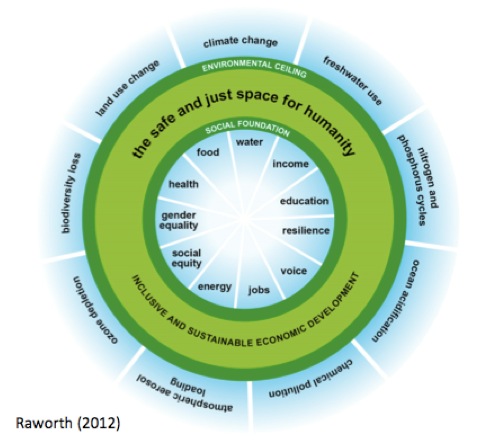@jacob
You're correct. I do know that you haven't lived in an RV for years. But your current situation is the benefit of the compounding effects of your previous actions which allowed you to build a cash reserve to ERE. Remove any of those actions to a significant degree, and could you still make the claim that you could live in a Chicago home at the same cost of living as in 2011? Could you even afford to purchase a home in Chicago?
And speaking of Chicago, how much does it cost to maintain a Chicago home in regards to water, sewage, electrical infrastructure as paid for by the private utilities or government in your jurisdiction? There's a carbon cost to that behavior as well. If the cost of that infrastructure was reduced to 1 jacob unit per member of household, could the state afford to maintain that infrastructure? ERE doesn't exist in a vacuum. The very agencies that help us "ERE" are the same agencies that help with overconsumption and carbon emission. So unless someone is living an ERE lifestyle that requires zero goods produced in a modern economy (i.e., Amazonian Indian living in the deep Amazon with no contact with modern civilization), our lifestyle in total, which includes the global outputs needed to live in a modern economy, exceeds the cost of 1 jacob, 2 jacob, and probably 10 jacob units. That you still spend $7200 a year today is not the total cost of supporting JLF's existence in his home state.
To get to a point where overconsumption and carbon output is no longer a net negative would require a drastic reduction or change in infrastructure or a significant decrease in the human population (less than 3 billion total). I understand Vimes Boot's theory because I lived it. I was a poor immigrant. But what Captains "Vimes" theory doesn't include is learning how to repair your own shoes. I'm no cobbler but I certainly glued and repaired the soles on my boots so they did last 10 years. Net cost was less than paying $50 bucks for "good" boots and the labor spent was less than 30 minutes worth of work. Goop glue for the win! But regardless how cheap the boot, or how cheap the Goop Glue, there's was a factory behind those purchases, and those factories have a carbon and consumption footprint which far exceeds the 1 Jacob Unit.
I don't think there's a way to get from "here to there" in terms of Wheaton levels because advancement [against the grain, so to speak] requires surplus capital (privilege in modern terms). Conversely, none of the high WLs are difficult insofar one grew up with them. It's resolving the cognitive dissonance that is hard.
Agreed. This is the hardest part. None of what you do now or did before (The tarp, RV, etc.) is hard but people think it's hard. That "poverty is as much a shortage of other kinds of capital as it is a shortage of cash" is not an insurmountable obstacle unless someone is born with a deficiency that prevents or greatly impairs their efforts. What makes it seem insurmountable is the cognitive dissonance that convinces people it's unattainable or undesirable. What if the only option to get to 1 Jacob was RV living, tarps, and navy showers? Is that so bad? In my opinion it's not. The problem is that many would find it mentally difficult to undertake any type of measure that doesn't conform to the fantasy they have in their heads.
This is making the assumption that revenue is being using efficiently and for productive purposes. I would argue neither is true for a large share of it. I think this amount can easily be trimmed down if the resources this money represents were being used even slightly efficiently. I'm not saying it will ever happen, just that theoretically, since a large share of this revenue is being burnt away, it's not all actually needed to attain the goals in the doughnut.
@ classical_Liberal
I'm not making that assumption. I've actually discussed the inefficiencies of government in other threads. Governments are inherently wasteful because they lack the monetary feedback required to make sound monetary decisions. Government doesn't care if they overspend because it's not their money they're wasting; they can just tax more in one area or stop providing services in another area. If waste was tied to compensation such that government officials were paid less and less the more wasteful they are, perhaps we would see a better stewardship of expenses.
And regardless how efficient our government gets, 3.5 Trillion in revenues would be a hard pressed target when
everyone is only spending $7,200 per year. In Q4 of 2019, American's spent 13.35 Trillion dollars. Even with all that spending, the Government still needed to borrow an estimated 1.2 Trillion to keep the wheels turning. There's no way the goals in the doughnut can be achieved on 1 Jacob Unit without a severe curtailment of entitlements. You can totally scrap the military budget and it will only save you 676 billion (
https://www.cbo.gov/publication/56324). The TED talk lady had no solutions because there are no solutions that can possibly provide everything listed within her doughnut. Even the soft goods she desires (social equity, gender equality) have an associated cost. There are no perfect solutions, only tradeoffs.
